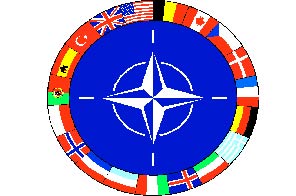NATO backs new Afghan strategy
BRATISLAVA: NATO nations acknowledged Friday that their operation in Afghanistan is not working and agreed they need a new approach to seize the initiative from the Taliban, Al-Qaeda and their backers.
NATO defence ministers, meeting in Bratislava, Slovakia, supported a plan to shift toward a fully-fledged counter-insurgency strategy but they did not say how they aimed to make it work, or commit troops to the move.
However, US Defense Secretary Roberts Gates indicated that a number of his European allies appeared ready to provide more resources for the approach, drawn up by the top commander in Afghanistan, US General Stanley McChrystal.
"It does not solve the problems in Afghanistan just to hunt down and kill individual terrorists," NATO Secretary General Anders Fogh Rasmussen told reporters.
"What we need is a much broader strategy which stabilises the whole Afghan society".
"I have noted a broad support from all ministers on this counter-insurgency approach, but let me stress, without discussing the resource implications of these recommendations," he added.
McChrystal's strategy puts protection of Afghan civilians at the centre of military action, forcing the fighters -- bolstered from rear-bases across the border in Pakistan -- to come to the military alliance and its partners.
The general, with a special forces background, updated the ministers on the operation and gave them a broad overview of his plan, emphasising that "population protection was the key to success," a US defence official said.
But while the United States is considering sending as many as 40,000 troops, few others nations have been willing to stump up resources, although Britain made a conditional offer of 500 soldiers prior to the talks.
Despite this, Gates said: "I detect a commitment and an energy on the part of our allies... in terms of their determination to participate with us in Afghanistan and see this through to a successful conclusion."
"There were a number of allies who have indicated they were thinking about, or moving toward, increasing their military or their civilian contributions or both, and I found that very heartening," he said.
NATO leads a force of some 70,000 troops drawn from 43 nations whose aim has been to foster security, democracy and reconstruction in a country wracked by more than 30 years of war, while US forces separately try to root out Al-Qaeda.
But the Taliban and other networks hold the initiative, eight years after the fundamentalist militia was ousted from power, and this despite being vastly out-gunned.
Mounting military and civilian casualties have begun to eat away at popular support for the mission in Afghanistan and in alliance home nations, and so undermine political will to see the mission through.
For the NATO-led International Security Assistance Force (ISAF) to be able to leave, the Afghan army and police must be built up. Commanders recommend more than doubling numbers to 400,000 personnel.
But ISAF is desperately short of the thousands of trainers who would be needed to prepare what is basically the force's exit strategy.
"Hopefully we'll agree to put more effort into the training area," Danish Defence Minister Soren Gade said. "That is part of our exit strategy to make sure that the Afghan national army can deal with the security problem itself."
A decision on troop reinforcements has been held up by concern over the fraud-tainted Afghan elections, because NATO allies want to be sure they will have a new government they can trust and work with.
The fraud allegations notably hit President Hamid Karzai, and while a second round of voting is due on November 7 it is unclear whether that will restore people's confidence in the whole process.
Gates said, however, that a US decision on troops was not far away.
"Probably over the next two or three weeks we're going to be considering some specific options and teeing them up for a decision by the president," he said.






